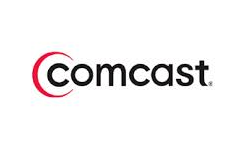Comcast, Liberty Global shake hands on international Wi-Fi networks


Comcast and Liberty Global have agreed to run trial services sharing broadband networks in 2014.
The cable companies announced the scheme Thursday, saying that the international Wi-Fi access agreement will give some of the firms' subscribers extended access to each other's broadband networks in 2015.
A trial is set to start at the end of this year, and if it proves successful, Xfinity Internet and Liberty Global internet customers will be granted access to new Wi-Fi access points in various countries by 2015. Comcast has over three million Xfinity Wi-Fi hotspots in the US, while Liberty Global has the upper hand in Europe -- claiming over 2.5 million Wi-Fi spots in countries including Belgium, the Netherlands, Ireland, Poland and Switzerland.
The companies say the deal will provide many of the 11 million Americans visiting Europe and the 12 million Europeans visiting the US a free alternative to roaming, which is often expensive.
Featured
Financial details were not disclosed.
Tom Nagel, senior VP of Strategic Initiatives for Comcast commented:
"This is our first step in bringing global Wi-Fi connectivity to our customers. We are excited to be working with Liberty Global and see this partnership as a great opportunity to further expand our Wi-Fi footprint and offer fast and secure wireless broadband service to our customers, not only while they are here in the United States, but also while they are traveling overseas."
The deal allows both Comcast and Liberty Global to expand globally, perhaps especially important for the former considering the heavy scrutiny placed upon Comcast's latest bid to grow -- the acquisition of Time Warner Cable.
Signed in February this year for $42.5 billion, the potential merger has faced severe opposition not only by rivals, but critics concerned that the move would create an anticompetitive space, would hamper innovation and could lead to the destruction of other companies.
Read on: Dish Network petitions FCC to block Comcast-Time Warner Cable merger
Read on: In the enterprise
- Salesforce.com adds Jawbone, Oculus Rift, smart devices to wearables platform
- Oracle completes $5.3 billion acquisition of Micros Systems
- YouTube launches fan funding for independent content creators
- Samsung, Philips, Infineon fined 138m euros over chip price fixing
- The weak link in the enterprise security chain: Falling for phishing